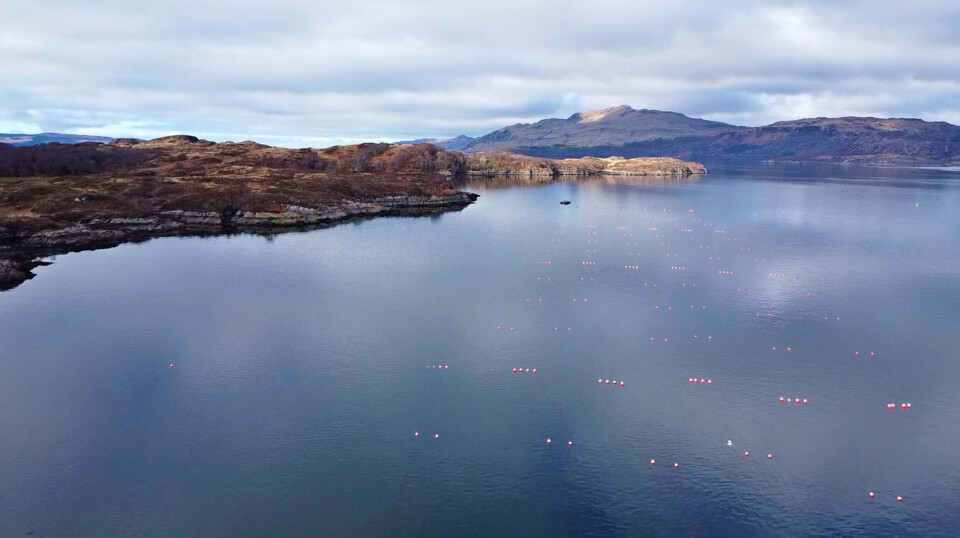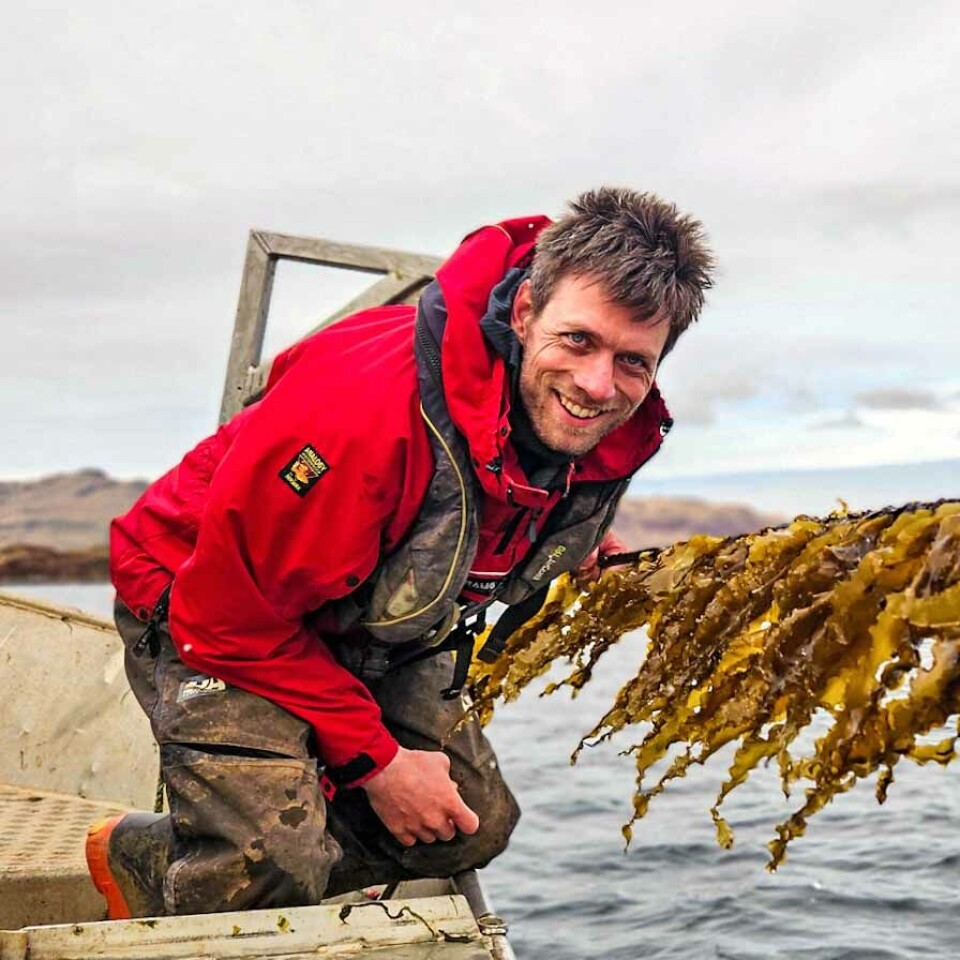
Farmed seaweed may help cut fertiliser use in agriculture
New research project could provide market opportunity for nascent UK aquaculture sector
A project that may lead to a new market opportunity for the UK’s fledgling kelp farming industry, as well as helping land farmers to reduce use of expensive mineral fertilisers, is under way with funding from Innovate UK.
The project, Assessing Sugar Kelp Extracts as a Nutrient Management Tool (SKE-NMT), is in its early stages and is led by Algapelago Marine Ltd in collaboration with project partners The James Hutton Institute, Atlantic Mariculture Ltd and the UK Agri-Tech Centre.
Algapelago operates a pilot site four miles off the North Devon coast and is the UK’s largest licensed kelp cultivator.
Atlantic Mariculture Ltd (AML) farms kelp at a 15-hectare site at East Oronsay in Loch Sunart and has applied for a 23-hectare site at Kentra Bay on the north side of Ardnamurchan peninsula. AML, which owns the Ardtoe Marine Laboratory, harvests between 90-100 tonnes per year from Loch Sunart, making it the largest inshore seaweed farm currently in operation on the West Coast of Scotland.
Less fertiliser
The SKE-NMT project will apply seaweed biostimulants under reduced mineral fertiliser application to confirm new nutrient management options through stimulating plant responses and promoting healthy soil biology.
Due to their rich profile of fibres, micronutrients and bioactive components, seaweed supplements enhance the growth of specific microbiota in soil, which leads to a cascade of biological functions with beneficial impacts for productivity, resistance to abiotic stress and resistance to pathogens.
While seaweed contains many compounds, some of which are high value, processing costs can be prohibitive. An advantage of the extracts being tested in the SKE-NMT project is that they are produced using a novel low-energy fermentation and extraction process.
The project will quantify the ability of the extracts to improve nutrient use efficiency in stringently designed crop trials. It will explore yield responses under reduced nitrate and phosphate conditions and correlate improved uptake of nitrogen and phosphorus under fertiliser limitation with impacts on microbial diversity and community structure.
Sustainable agriculture
Dr Adrian Macleod, innovation manager at Atlantic Mariculture Ltd, said: “We are delighted to have been provided this opportunity by Innovate UK.

“Seaweed aquaculture is a game-changer for sustainable food systems, and I’m passionate about unlocking its full potential.
“Cultivated seaweed biomass offers a scalable, sustainable solution that not only supports marine ecosystems but could also play a vital role in sustainable agriculture.
“This project is an exciting step forward in demonstrating how seaweed biostimulants can enhance soil health, improve nutrient efficiency and reduce reliance on conventional fertilisers.
“By developing an innovative supply chain, we are laying the groundwork for a future where cultivated seaweed is a cornerstone of both aquaculture and agriculture.”
Real world use
Martin Sutcliffe, innovation lead for aquaculture at the UK Agri-Tech Centre, said: “The UK seaweed farming sector has great potential to meet the needs of other sectors such as arable farming.
“Projects like this can provide real world use cases for seaweed farmers, enabling sustainable growth of seaweed farming in the UK which, in turn, can provide well-paid, long-term jobs in our coastal communities, helping to shift away from the current boom and bust cycle of seasonal employment.”























































